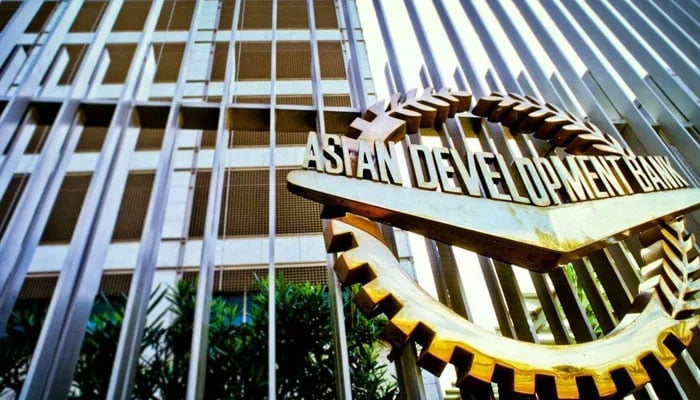Pakistan inks $1.2 billion loan agreement with ADB
One-thirds of funds to be used for budget funding and make way for jammed financial pipelines
The Asian Development Bank (ADB) Wednesday confirmed that it has inked a $1.2 billion loan agreement with Pakistan.
The agreement, signed on December 15, provisions budget funding and initiatives focused on domestic resource mobilisation and also features six projects aimed towards the financial independence of women.
Out of the total $1.2 billion, at least one-third of the funds will be shelled out as budget financing and clear the way for jammed financing pipelines after Pakistan's agreement with the International Monetary Fund (IMF).
The Economic Affairs Division (EAD) and ADB signed the loan agreements last Friday. An EAD official also confirmed the agreement and highlighted that ADB will allocate $400 million from the total fund for budget support via two different agreements.
World Bank approves $350 million in financing
Meanwhile, the executive directors' board of the World Bank also approved $350 million in financing today for the Second Resilient Institutions for Sustainable Economy (RISE-II) Operation to strengthen fiscal management and promote competitiveness for sustained and inclusive economic growth.
Najy Benhassine, the World Bank country director for Pakistan, said Pakistan needs urgent fiscal and structural reforms to restore macroeconomic balance and lay the foundations for sustainable growth.
"RISE-II completes a first phase of tax, energy and business climate reforms geared to raising additional revenues, improve the targeting of expenditures and stimulate competition and investment," he added.
The operation contributes to better fiscal management by improving fiscal policy coordination, enhancing debt transparency and management, strengthening the taxation of property, and improving the financial viability of the power sector.
The World Bank operation also aims to foster growth and competitiveness by reducing the cost of tax compliance, improving financial sector transparency, encouraging the use of digital payments, and promoting exports by lowering import tariffs.
"Based on the foundations laid through RISE II and parallel support by other IFIs, Pakistan has the opportunity to tackle long-standing structural distortions in its economy after the upcoming general elections. Failing to use this opportunity would risk plunging the country back into stop-and-go economic cycles," said Derek HC Chen, task team leader of the operation.
-
Bitwise Crypto Industry innovators ETF: What investors should do in 2026?
-
Nintendo shares slide again as momentum fears grow
-
Gold, silver prices fallen sharply; What’s driving the drop?
-
Gold’s record climb: Experts question if its safety is ‘overstated’
-
Dubai unveils plans to construct street built with real gold
-
Netflix slams Paramount’s bid: 'Doesn't pass sniff test’ as Warner battle escalates
-
Ubisoft: Shares plunge amid restructuring plan and wave of games cancellations
-
Netflix revises Warner Bros. deal to $83 billion: All-cash offer












